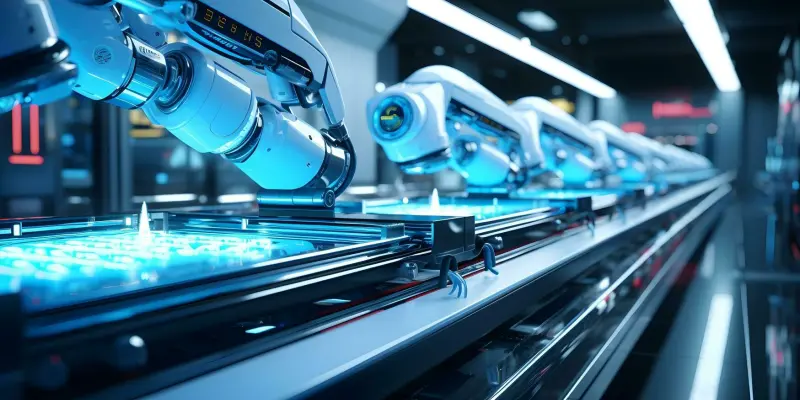In a decisive move to propel the manufacturing sector into new realms of efficiency and innovation, KUKA has introduced its iiQWorks engineering suite, a transformative software platform aimed at enhancing robotic automation. This cutting-edge suite facilitates offline programming and simulates KUKA robots’ operations, placing digital twin technology at the forefront of modern manufacturing practices. By enabling manufacturers to create accurate digital replicas of robotic cells, iiQWorks empowers users to execute programmed paths and test scenarios digitally before any physical interaction occurs. This capability is crucial in preempting challenges like limited robot reach or inefficient cycle times by offering a comprehensive simulation environment for refining robotic operations.
Digital Twins: The Heart of Modern Manufacturing
Digital twin technology is gaining significant traction within the manufacturing industry, and iiQWorks effectively leverages this trend. The software allows manufacturers and machine builders to simulate modifications to production lines and factory layouts, all without necessitating direct interaction with physical robots. This capability aligns with the broader push towards maximizing efficiency and reducing time to market by enabling extensive debugging and code development offline. Consequently, manufacturers can address potential issues, collaboratively test various processes, and ensure smoother project integration phases without risking operational downtime or costly physical prototype testing.
The modular architecture of iiQWorks amplifies its appeal, allowing users to select and purchase only those features that meet their specific needs. This flexibility ensures that both small operations and larger industrial setups can benefit from advanced robotic simulation and programming tools. The basic version of iiQWorks is made freely accessible to users, presenting an entry-level opening into the robust world of KUKA’s digital solutions. Meanwhile, additional functionalities are available for purchase, catering to more complex requirements and advanced users who seek enhanced capabilities for their manufacturing needs.
Empowering Users and Enhancing Efficiency
iiQWorks not only streamlines manufacturing processes through its sophisticated digital twin capabilities but also transforms digital twins into valuable deliverables, enriching customer knowledge and interaction with their equipment. This innovative approach bridges the divide between OEM expertise and user familiarity, enabling users to gain comprehensive insights and capabilities well in advance of receiving the physical equipment. Training and layout planning become more efficient and effective as users can simulate and adapt processes based on realistic digital models, ensuring that they are fully prepared when integrating physical systems.
Furthermore, the suite’s planning features facilitate the simulation of optimal placement within the factory environment, enhancing overall product flow efficiency. By simulating the best fit for robotic systems within specific factory spaces, manufacturers can optimize layouts for improved operational effectiveness, ultimately leading to more streamlined and productive manufacturing operations. This proactive simulation and planning approach exemplifies KUKA’s commitment to offering flexible, forward-thinking solutions that empower users in robotic automation.
A Progressive Step in Robotic Automation
KUKA has taken a significant step to elevate the manufacturing sector’s efficiency and innovation by launching its iiQWorks engineering suite. This is an advanced software platform designed to enhance robotic automation through offline programming and simulating KUKA robots’ activities. At the heart of this suite is digital twin technology, which is increasingly integral in today’s manufacturing processes. By creating precise digital replicas of robotic systems, iiQWorks enables manufacturers to digitally execute programs and test scenarios before any physical implementation. This is vital for foreseeing and tackling issues such as restricted robot reach or suboptimal cycle times. Essentially, it provides a robust simulation environment to streamline and refine robotic operations, ensuring that potential hurdles are addressed in advance. With iiQWorks, manufacturers are well-equipped to boost operational efficiency, paving the path for innovation and seamless integration of robotics into their processes.

